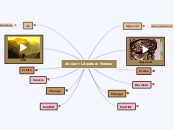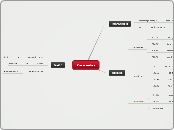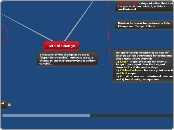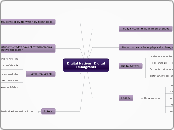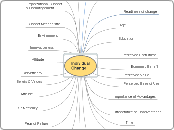Ancient Literature Heroes
The external conflicts in the story are caused by the Adversary making Job lose his children and his possessions, and afflicting painful sores on his body. The other external conflicts are caused by his companions being judgemental.
The internal conflict is when Job has to decide to turn from the Lord or remain faithful during his adversities. Job also has the internal conflict of forgiving his companions for their judgements of accusing him of having evil ways.
Job resolves the conflicts by staying faithful standing up for his convictions and forgiving his friends for their judgements.
Job was a static character in that he does not change during the story. He remains faithful and righteous throughout the story.
“Naked I came out from my mother’s womb,
and naked shall I return there.
The LORD has given and the LORD has taken.
May the LORD’s name be blessed.”
"Life and kindness you gave me,
and Your precepts my spirit kept."
"I laughed to them—they scarcely trusted—
but my face’s light they did not dim."
" To him only I shall show favor, not to do avile thing
to you, for you have not spoken rightly of Me as
did my servant Job."
Job is the protagonist because he is the main character and the hero of the story.
Job is a hero because he keeps his faith in the Lord through all of his trials and hardships. Job also stays true to himself by proclaiming his innocence and defending himself.
Innocent
"My servant Job, for there is none like him on earth, a blameless and upright man, who fears God and shuns evil and still clings to his innocence."
Faithful
"The LORD has given and the LORD has taken.
May the LORD’s name be blessed.”
Forgiving
" Job My servant will pray on your behalf"
Honest
"To your face I will surely not lie."
JOB
Job
Job was
"blameless and upright and feared God and shunned evil."
Physical Appearance:
" my skin rippled with running sores."
"With skin and flesh You clothed me"
"In the aged is wisdom"
Job was faithful to the Lord even through the tests of the Adversary that said Job would turn his back on the Lord and curse him when he lost his children, his possessions and had excruciating pain from sores all over his body. Job did not put blame on God for doing these things to him.
The Book of Job
The Book Of Job is a story from the Old Testament of the Bible, in the land of Uz.
All quotes are from:
The Norton Anthology of World Literature Volume One: Beginnings to 1650 THIRD EDITION Martin Puchner, General Editor, et al.
Conflict
External conflicts are caused by the battles with Enkidu, Humbaba, the Bull of Heaven and the gods.
Internal conflicts are caused by grief, Gilgamesh's desire for immortality and leaving the legacy of a good name.
The resolutions of these conflicts are when Gilgamesh wins the battles between the opponents and then he realizes and understands the meaning of living his life to leave a legacy and changes his actions to become a better man and ruler for his people.
Change
Gilgamesh is a dynamic character since he changes during the story. He becomes a good ruler to the people instead of ruling like an oppressive king and wants to leave a good name for himself to be remembered.
"The Gilgamesh of the epic is an awe-inspiring, sparkling hero, but at first also
the epitome of a bad ruler: arrogant, oppressive, and brutal."
"Since no man can avoid life’s end,
I would enter the mountain land
and set up my name."
"But soon after his death, he was revered as a great king."
Heroism
Protagonist- Gilgamesh is the main character and the hero of the epic.
Hero-
Gilgamesh means “the offspring is a hero"
Gigamesh is a hero because he becomes
"Bold, superb, accomplished, and mature"
Traits
Prideful-
"his head thrust high"
Wise-
"He knew the ways, was wise in all things"
Adventurous- Heroic
"There dwells in the forest the fierce monster Humbaba,
You and I shall kill him
And wipe out something evil from the land."
Gilgamesh
Gilgamesh is the King of the city-state of Uruk in ancient Mesopotamia. He ruled around 2700 B.C.E.
Gilgamesh appears as “two-thirds divine and one-third human,”
Strong-
"Gilgamesh is perfect in strength"
Handsome-
"The whole of his body is seductively gorgeous."
"The princess Ishtar coveted Gilgamesh’s beauty"
Tall-
"Towering Gilgamesh is uncannily perfect"
"He was perfection in height,
Ideally handsome"
Epic of Gilgamesh
The Epic of Gilgamesh is the greatest work of ancient Mesopotamia and one of the earliest pieces of world literature.
All quotes are from:
The Norton Anthology of World Literature Volume One: Beginnings to 1650 THIRD EDITION
Martin Puchner, General Editor, et al.
